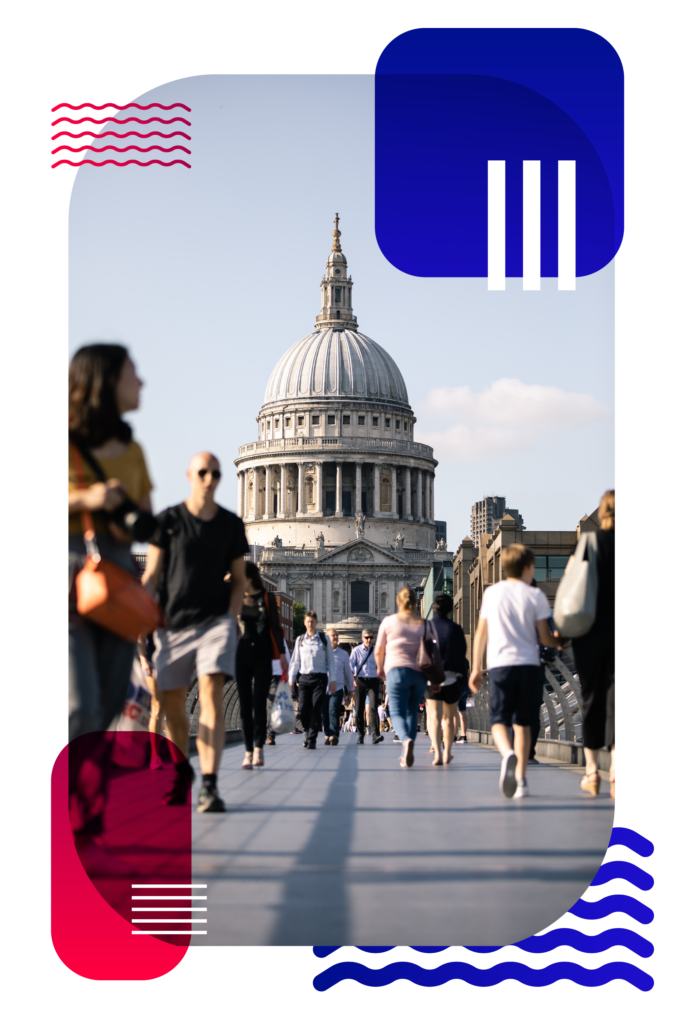Study In UK.
UK Is One Of The Best Country In The World For International Education. We Will Guide You Why You Should Choose UK As
Your Study Abroad Destination.
Guide For Study Abroad In UK
Whether you want to know about the Education System of the UK Or want to know what UK is Like. We will cover all the necessary topics to give you an overall understanding of the UK.
Why Study In UK?

Over 200,000
international students come from all over the world to study in the UK every year. They’re drawn to the top-ranked educational institutions, cutting-edge academic and research facilities, and the broad range of courses they can choose from.

Worldwide Recognition
The qualifications & degrees from UK universities are acknowledged with respect around the world.
From Oxford to Cambridge, UK has some of the Top – Ranking universities in the world.

Affordibillity
The UK is one of the most affordable countries for international students to pursue a quality education.
Usually undergraduate & graduate programs are shorter in UK. Undergraduate programs are 3 years instead of 4 & graduate programs are 1 to 2 years long.

Housing
Many universities have halls of residence. Living in halls is an excellent way to make new friends & get used to campus life. Students either have a single room, or share with a roommate. All rooms have basic furniture. Bathrooms & kitchens are often shared. Students can purchase food at campus canteen, or provide their own food options.

Culture
The UK is an extraordinarily multicultural society. All the countries of the UK have their own cultures, languages & traditions. Different races, religion & ethnicities are welcome in the UK. Minorities make up about 15% of the population. Students can feel comfortable & confident knowing they’ll be welcomed.

Work While Study
One of the major benefits of studying in the UK is that you can Work While Study. Students may find a job on or off campus. International students can typically work up to 20 hours per week during school terms, and full-time hours (35+ hours per week) during school holidays.

Life In UK
People in the UK enjoy a high quality of life. According to the OECD Better Life Index, the UK ranks above average in personal security, environmental quality, civic engagement, health, jobs and earnings, income, education, and overall subjective happiness and well-being.
Post Secondary Education System

International students
come from all over the world to study at higher education institutes across the UK. Universities in the UK are consistently ranked high among the world’s best educational institutions and have established a strong reputation for academic and research excellence. Students can choose from a wide range of courses that match their interests and career goals in either academic or professional fields.

Bachelor' Degree
(Undergraduate)
Bachelor’s degrees focus on one or two subjects (dual or joint honours) in depth. It combines academic theory and practice. Those with bachelor’s degrees tend to be seen as more employable and make more money after they graduate.

Master's Degree
(Postgraduate)
After a bachelor’s degree, students can take a master’s degree or an integrated master’s where they can further specialize in their subject of interest. A master’s may be subject, teaching, or research-focused depending on the course.
Upon graduation from university, students receive a specific class of degree depending on their grades. For example, students who achieve a grade average above 70% graduate with a First Class Honours (1st) degree.
Employers may consider the degree class, especially for the student’s first job out of university. The degree class may also influence what master’s and postgraduate courses students can apply for and be accepted to if they choose to go that route.
First Class Honours (1st)
The highest honours degree awarded.
70%+
Upper-Second Class Honours (2:1)
The higher level of a second-class degree.
60-70%
Lower-Second Class Honours (2:2)
The lower level of a second-class degree.
50-60%
Third Class Honours (3rd)
The lowest level of honours degree awarded.
40-50%
Ordinary Degree
If an honours student misses third-class by a small margin, they may be awarded an ordinary degree, which means without honours.
<40%
Pathway Programs
Pathway programs can help students improve their English and help make the transition to higher education studies easier.
There are many colleges and universities that offer courses such as pre-university programs, foundation years,
and English language courses.

English Language Courses
English proficiency is often an admissions requirement for most universities, so international students usually have to take an English language assessment such as IELTS, TOEFL, or UCLES. Each program will have different English language proficiency requirements, so be sure to check each educational institution and program page for details.
English language pathway courses incorporate skills such as speaking, listening, reading, and writing. An English course may take anywhere from a few weeks to a year to complete depending on the program provider.
We’ll discuss English language requirements in more detail later in the module.

Academic Pathways
There are also academic pathways that help students prepare for university. These subject-based courses provide foundational knowledge in subjects such as English, math, art, and science to help students meet the prerequisites for university admissions.
One of the most popular pre-university preparation programs is A Levels. A Levels are studied over two years and may be an admissions requirement for university depending on the school, course, and the student’s previous education.
Students should always check with the university they applied to and confirm what credentials they need to provide. These credentials might vary depending on the country the student is from. There are many A Level subjects students can study depending on their interests and what university course they want to take.
Foundation Year Program
Students can take a foundation year if they’re undecided about going to university, or if they’re a mature student. Foundation years give students a chance to experience university-level study without fully committing to a degree. It’s a way to ease into or be reintroduced to the educational environment and gain an understanding of the field of interest.
Foundation programs are also beneficial for students who haven’t studied in the UK before. It can help bridge the gap between their current qualifications and UK higher education requirements. These programs are a great opportunity to fill any academic gaps, continue to improve English language skills, and help students adjust to life in the UK and the academic system.
It’s important to note a foundation year program is different from a foundation degree program. A foundation year provides students with qualifications to enter a degree program. A foundation degree is a qualification in itself that usually takes two years to complete. Students can continue their degree to earn a full honours degree after the first two years of study.
Application Requirements

Once students
complete all their secondary requirements, the next step is to decide on the post-secondary institution they want to attend as well as the course they want to study.
Universities and Colleges Admissions
Service (UCAS)
The Universities and Colleges Admissions Service (UCAS) is a UK-based charity organization that handles the application process for most British universities. It provides an admissions application portal as well as resources, information, and advice for students, parents, and education industry professionals.
UCAS is used primarily for undergraduate application services, but it also manages admissions for conservatoires, teacher training, and applications for some postgraduate courses.
As a registered UCAS centre, institutions, recruiters, and organizations can help support students through the application process. ApplyBoard is a registered UCAS centre and offers application services for a wide range of study options in the UK.
Entry Requirements for Undergraduate Programs
Undergraduate or bachelor’s degree entry requirements for UK university courses often include qualifications such as the following:
1. English and math proficiency.
2. Admissions tests.
3. Interviews and auditions.
4. Other requirements such as a health check, financials check, or criminal record check.
Admission requirements will vary depending on what country the student is from and whether they’re applying to undergraduate studies or postgraduate studies. Always check the specific requirements for each course to determine a student’s eligibility
Widening Access
Entry requirements into universities and colleges in Scotland are different from other UK institutions. Grades are an important factor for both levels of requirements, but the minimum entry requirement also considers students’ personal criteria under the widening access program.
Widening access is similar to contextual admissions and offers. Students can outline special circumstances on their personal statement that might pose as a barrier to accessing higher education. This additional information will be considered along with all other application entry requirements.

English Language
Requirements
You’ve already learned about the importance of English language proficiency requirements for international students who wish to study in the UK.
Students are required to meet the accepted level and understanding in English to study a degree program. Plus, students are required to meet the expected standards of English language proficiency that’s important for the visa application process.
To ensure students successfully meet all English language proficiency requirements, here are some of the accepted English tests students can take to assess their reading, writing, listening, and speaking skills:
- Test of English as a Foreign Language (TOEFL)
- Duolingo—a language-learning website, mobile application, and digital language proficiency assessment exam
- International English Language Testing System (IELTS)
- Cambridge Assessment English (CAE)
- LanguageCert International—English to Speakers of Other Languages (ESOL) & Secure English Language Test (SELT)
LanguageCert International—English to Speakers of Other Languages (ESOL) & Secure English Language Test (SELT): Speaking and Listening
- Pearson Test of English (PTE)
- Cambridge Certificate of Proficiency in English (CPE)
- Cambridge English Advanced (CAE)
UK universities and colleges may have their own course requirements for English test scores. Higher test scores will be required for programs in law and medicine. Be sure to check with the institution to find out what their English language requirements are for each program.

Application Deadline
Application deadlines in the UK can be unique to each university and college, so it’s important to check with the institution to ensure the student prepares their application well ahead of the program and course deadlines. In general, an academic year in the UK consists of three terms:
- First term—September to December (Autumn)
- Second term—January to March (Spring)
- Third term—April to June (Summer)
International students must be diligent and ensure visa application requirements, English language requirements, and all supporting documents are prepared as early as possible. Popular courses fill up quickly, particularly postgraduate courses.
Once the student’s application and all documents have been submitted, UK universities and colleges will make a decision accordingly and respond by required deadlines. Students can also check the UCAS website for deadlines because they can change year to year.
- January applications = May deadline for decision
- June applications = July deadline for decision
- October is the final deadline for decisions
Once a university or college makes a decision, they’ll send conditional or unconditional offers to a student. If a student receives a conditional offer, it means they still have to fulfil some requirements, such as test results, course completions, or final grades. The institution will outline these requirements in the conditional offer.
If a student receives an unconditional offer from a university or college, it means they’ve satisfied all the entry requirements and can accept the offer.
Confirmation of Acceptance for Studies (CAS)
A Confirmation of Acceptance for Studies (CAS) letter is another important part of the application process and is a requirement for getting a student visa to study in the UK. A reference number is provided by the educational institution the student applied to and is documented on the CAS letter.
This letter is proof the student received an unconditional offer from a UK institution, and they’ll require this number for their visa application. The university or college that sends a CAS letter is considered the application sponsor (not a financial sponsor).
Some universities require students to request the CAS letter, while others will send it themselves. Be sure to find out what process is followed from the university or college the student applied to.
Student Visas

Prior to applying
to any university or college course, students should verify the course is approved under the UK Government Regulated Qualifications Framework (RQF).
The qualifications and levels for each course are outlined on the UK Government website, so always check there for current information. Here’s a list of some of the approved courses:
- A full-time course with a qualification below degree level (RQF level 3, 4, 5)
- A full-time course with a qualification at degree level or above (RQF level 6, 7, 8)
- A full-time course at degree level or above equivalent to a UK higher education course and delivered as part of a longer course overseas (RQF 6, 7, 8)
- A recognized foundation program for postgraduate doctors or dentists
Visa Application Results
It’s extremely important to provide accurate information on the Student visa application because any discrepancies could lead to a visa rejection. Some reasons a Student visa might be rejected include the following:
- Inadequate information or supporting documents
- Lack of finances
- History of visa rejections
- Failing identity checks, criminal checks, security checks, etc.
- Poor interview
A student will likely receive a letter in the mail stating their visa application was rejected, and their passport will be returned to them. The letter will state whether they qualify for an administrative review process. If they qualify, they’ll have about 28 days to apply for an administrative review online, and it takes about the same length of time to receive a response.
If a student doesn’t qualify for an administrative review, they might have an opportunity to pursue an appeal. It’s best to visit the UK Government website for more information about appealing a decision.
Extending A Visa
A student can extend their visa to complete their studies, or begin a new course. Students can also extend the visas of their partner and children at the same time.
Students will have to provide validation of academic progress as well as proof they still have sufficient funds to support themselves if they’ve been in the UK less than 12 months.
Here is a list of requirements students must meet to extend their visa:
- Must be in the UK on a Student visa
- Must have an unconditional course offering with a licensed student sponsor (a CAS letter is proof)
- Provide proof their studies are at a higher academic level than their current course
- The course is at the same level and related to their previous course and is at degree level or above at a Higher Education Provider (HEP)
- They were placed in a medicine, dentistry, or medical science course that began under their Student visa.

Switching To A
Student Visa
If a student already has permission to be in the UK and has an unconditional course offer from a licensed educational institute, they might qualify for switching to a Student visa. Again, students can also switch the visas of their partner and children at the same time. They’ll have to provide proof they still have sufficient funds to support themselves if they’ve been in the UK less than 12 months.
Students or their dependents won’t be able to switch their visa if they have one of the following:
- A Visitor visa
- A short-term Student visa
- A Parent of a Child Student visa
- A Seasonal Worker visa
- A Domestic Worker in a Private Household visa
Processing Time
Students should apply to switch their visa earlier than three months before the start of their course and well before their current visa expires. Their course must start within 28 days after the expiration of their previous visa. Also, students must apply within six months of receiving their Confirmation of Acceptance for Studies (CAS) letter. CAS is important for confirmation of studies. They’ll still require proof of their identity to switch their visa, which may include biometric information.
It usually takes about eight weeks before students receive a decision, but it’ll take longer if there’s any discrepancies in their supporting documents, if they’re required to attend an interview, or their personal circumstances have changed. If an application is approved, a student will receive either a BRP, or a digital immigration status that can be viewed online.
Financial Cost & Work Options

Planning
for your
expenses as an international student is a top priority. Expenses include more than just your visa application, flight tickets, accommodations, and university application fees. One of the most important requirements to study in an undergraduate or postgraduate program in the UK is having the money to pay for tuition fees.
Tuition fees can vary depending on where the student wishes to study in the UK, the university or college they choose to attend, the type of program they’ve applied to, and the country they’re coming from. Fees can range from about £4,900 (C$8,700) a year to over £30,000 (C$53,000) depending on the university and whether it’s an undergraduate or postgraduate degree. The average cost per year is about £11,000 (C$19,500).
Tuition fees can change on a yearly basis. Students can find current tuition fees for the programs they choose on university and college websites. Science and medical degree courses are often more expensive than social science, business, or arts degrees.

Cost Of Living
Studying abroad requires a lot of detailed planning and budgeting. Aside from visa and academic costs, students have to plan for daily living expenses, such as rent, food, utilities, entertainment, travelling, and transportation.
The cost of living in the UK depends on a few factors, including spending habits, lifestyle, and budget. Students who choose to study in England and who want to live in London will likely pay more for living expenses than in other parts of the UK. There are different types of accommodations, including on and off-campus housing and homestay living where students can opt to live with a local family.
Many first-year international students will choose to stay on campus at their university to ensure a smooth adjustment into life in the UK. Some universities offer international students a guaranteed place in student halls and residences for their first year of study.
University accommodation costs can vary from country to country and institution to institution. The estimated cost of living for an international student studying in the UK is about £12,000 to £24,000 per year (C$21,000 to C$42,400 and US$16,900 to US$33,800). This doesn’t include tuition, visa, or other administrative fees.
UK Visa and Immigration requires students to provide proof they can budget for about £1,000 to £2,000 per month for living expenses.

Working While Study
International students who pursue higher education opportunities in the UK have some options to help with their academic expenses as well as to gain valuable work experience.
On-campus Versus Off-campus Employment
Even though international students might desire to work part-time during their studies, they have to be aware of their personal ability to balance study obligations with work commitments. Students can work a maximum of 20 hours per week during a degree level or higher program (RQF level 6 or SCQF level 9+), 10 hours per week for a language centre or below degree level program, and full-time during holidays. Program levels can be confirmed on a Confirmation of Acceptance for Studies (CAS) letter.
On Campus
It’s a great idea to look for employment opportunities on campus or as near to the university as possible to minimize the amount of travel time to and from the workplace. Some on-campus jobs might include working in the library, bookstore, fitness centre, computer or science labs, cafeteria, or as a receptionist.
Students can also check their university job boards, newspapers, job portals, or visit the on-campus career centre to find off-campus job opportunities.
Off Campus
There are a variety of off-campus job options available to international students, such as a restaurant server, bartender, gardener, social media assistant, call-centre representative, cashier, data entry clerk, and more.
Students should always check with UK Visas and Immigration as well as their university for any restrictions or conditions about working while studying abroad. The UK Council for International Student Affairs (UKCISA) is also a great resource for students.
There are some jobs students aren’t permitted to do, including being self-employed, working as an entertainer, or sports coaching. Most international students aged 16 and above are permitted to work in the UK. As of October 2020, the Tier 4 Student leave has been renamed Student and Child Student permission. Work restrictions and rights are detailed in the conditions of the student’s immigration permission.
Some universities might have restrictions about working while studying depending on the program a student is enrolled in. Again, be sure to check UK Visas and Immigration and the university for more details and updates about student work permits.

Postgraduate Work Permit
International students have the opportunity to apply for a post-study work visa in the UK after graduation.
Students who still have a Tier 4 visa and who enrolled in a UK university from September 2020 onward are eligible to work in the UK after they graduate. They can look for work once they’ve completed their bachelor’s, master’s, or PhD program and can stay for two years.
There’s also a Graduate route available for PhD students that allows them to extend their stay to a three-year work permit. Post-study work opportunities aren’t available to students who’ve studied a short course, an English language training course, A Levels, or International Baccalaureate courses.
Paths To Settlement
Some international students may be eligible to pursue a pathway to settlement after graduation from a UK program.
The Skilled Worker route can also be a pathway to settlement in the UK after five years of continuous lawful residence as long as the person is still required for that specific job by the employer.
The skilled occupation must also be an eligible job from a Home Office approved sponsor. The dependents of the skilled worker can also qualify to apply on this route. An application for the Skilled Worker route has specific requirements that must be met, such as validity, suitability, and eligibility requirements. Applicants must provide the following:
- Biometrics
- A passport or other travel documents that establishes identity and nationality
- Proof they’ve been given permission as a skilled worker
- Proof they haven’t been in breach of immigration laws
- Evidence of their Knowledge of Life in the UK
- A letter from the employer to confirm the skilled worker is required for the specific job
- The general salary requirement or the going rate (different salary rules may apply to healthcare or education)
Life In The UK

When
students arrive
at the airport or point of entry, they’ll be required to go through customs where a UK Border Force Officer will review their documents and ask questions about the purpose of their stay in the UK.
To ensure they’re prepared to go through customs when they arrive, students should have the following documents in their purse, backpack, or carry-on.
- Passport.
- Student visa.
- Confirmation of Acceptance for Studies (CAS) letter.
- A letter detailing their biometric residence permit (BRP information and where they’ll picking it up.
- The vignette in their passport.
- Driver’s license.
- Birth certificate.
- Proof of sufficient funds.
- Proof of vaccinations if required including tuberculosis results (x-rays, etc.)
- Documentation of all address including the university, accomodations, etc.
- Health and travel insurance.
- Information regarding prearranged transportation.
